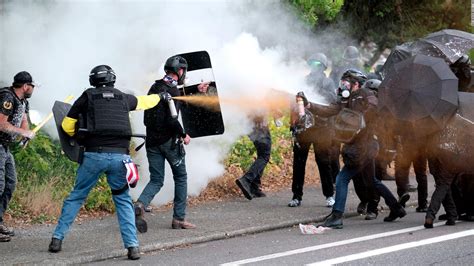
Bono has responded to Bruce Springsteen’s recent remarks on the divisive political climate in the United States, issuing a statement emphasizing the need for understanding and empathy across the political spectrum, while acknowledging the deep divisions gripping the nation.
U2 frontman Bono has weighed in on Bruce Springsteen’s perspectives regarding the current political polarization in the United States, advocating for unity and mutual comprehension. In a statement released recently, Bono echoed Springsteen’s sentiments about the fractured state of American society while urging a more empathetic approach to bridge the existing divides. “The polarization is definitely not an American problem. It is a European problem, too; everybody feels it. And I don’t want to sound naive about this, but I do believe we need to listen to each other,” Bono stated, emphasizing the global nature of political division.
Springsteen’s original comments, which prompted Bono’s response, had focused on his concerns about the increasing animosity and lack of constructive dialogue between different political factions. Bono, known for his activism and advocacy for social justice, built upon this foundation, suggesting that fostering understanding is crucial to overcoming the challenges posed by political division. He did however offer an additional perspective. “I know it is very uncool to say, but I even try to listen to people I profoundly disagree with. I am not always successful, and my brain hurts. But, you know, you might as well. I think it is a way to understand what’s going on.”
Bono’s statement arrives at a critical time when political discourse is often characterized by heightened emotions and a lack of civility. By calling for a more empathetic approach, Bono hopes to encourage individuals to engage in meaningful conversations and seek common ground despite their differences. He added, that while it isn’t always easy, it is necessary.
The remarks by Bono and Springsteen highlight a growing concern among prominent figures in the arts and entertainment industries about the state of political discourse in the United States and beyond. Their unified message underscores the importance of fostering understanding and empathy as essential tools for navigating the complexities of today’s political landscape. This appeal to understanding and dialogue comes as many grapple with the challenges of bridging ideological divides and finding common ground in an increasingly polarized world. Bono’s comments are not just a reaction to Springsteen’s statements but a broader reflection on the state of global politics and the need for greater empathy and understanding. The challenge, as Bono himself admits, lies in actively listening to opposing viewpoints, a practice that he acknowledges can be difficult but ultimately rewarding.
Contextual Background:
The backdrop to Bono’s statement is a world increasingly defined by polarization, both within nations and between them. The rise of social media has amplified echo chambers, where individuals are primarily exposed to information and opinions that reinforce their existing beliefs. This phenomenon has made it increasingly difficult to engage in constructive dialogue with those holding different viewpoints, leading to heightened animosity and a breakdown in civil discourse.
Bruce Springsteen, known for his socially conscious lyrics and activism, has often used his platform to address pressing political issues. His recent comments, which served as the catalyst for Bono’s response, reflected his concerns about the erosion of common ground and the increasing hostility between different political groups. Springsteen’s observations resonated with many who feel that the current political climate is characterized by division and a lack of empathy.
Bono, as a global humanitarian and activist, has consistently advocated for unity, understanding, and cooperation. His work with organizations like ONE Campaign and (RED) has demonstrated his commitment to addressing global challenges through collaboration and dialogue. Bono’s response to Springsteen’s comments is consistent with his long-standing belief in the power of empathy and understanding to overcome divisions.
Deep Dive into Bono’s Statement:
Bono’s statement goes beyond a simple endorsement of Springsteen’s concerns. It delves into the practical implications of political polarization and offers a potential path forward. By emphasizing the importance of listening to those with whom we disagree, Bono challenges individuals to step outside their comfort zones and engage in meaningful conversations. He acknowledges that this process can be difficult and even painful, but ultimately necessary for fostering understanding and bridging divides.
The U2 frontman’s call for empathy also extends to recognizing the validity of different perspectives. While disagreement is inevitable, Bono suggests that understanding the underlying reasons for those disagreements can help to de-escalate tensions and create opportunities for dialogue. This approach requires a willingness to challenge one’s own assumptions and to consider alternative viewpoints with an open mind.
Moreover, Bono’s statement highlights the global nature of political polarization. He notes that the phenomenon is not limited to the United States but is also prevalent in Europe and other parts of the world. This broader perspective underscores the need for a global effort to promote understanding and cooperation across national boundaries. The rise of nationalism and populism in many countries has contributed to increased divisions and a retreat from multilateralism, making Bono’s call for unity all the more urgent.
Bono’s perspective is influenced by his extensive experience working on global issues, from poverty and disease to climate change and human rights. He has witnessed firsthand the power of collaboration and dialogue to overcome seemingly insurmountable challenges. His belief in the importance of empathy and understanding is rooted in this experience, and he sees it as essential for addressing the complex problems facing the world today.
Analysis of Springsteen’s Influence:
Bruce Springsteen’s influence on Bono’s perspective cannot be understated. Springsteen, often called “The Boss,” has been a voice for the working class and a chronicler of the American experience for decades. His music often explores themes of struggle, resilience, and the search for meaning in a world marked by inequality and injustice. Springsteen’s commitment to social justice and his willingness to speak out on controversial issues have made him a role model for many artists and activists, including Bono.
Springsteen’s recent comments about political polarization reflect his deep concern for the direction of the United States. As a keen observer of American society, he has witnessed the erosion of common ground and the rise of tribalism. His remarks serve as a warning about the dangers of division and a call for a return to civility and dialogue.
Bono’s response to Springsteen’s comments can be seen as a testament to the latter’s influence. By echoing Springsteen’s concerns and amplifying his message, Bono is helping to raise awareness about the importance of addressing political polarization. Their combined voices carry significant weight, and their unified message has the potential to resonate with a wide audience.
Broader Implications for the Music Industry:
The statements by Bono and Springsteen have broader implications for the music industry and the role of artists in addressing social and political issues. In an era of increasing polarization, many artists are hesitant to speak out on controversial topics for fear of alienating fans or facing backlash. However, Bono and Springsteen have demonstrated that it is possible to use one’s platform to promote dialogue and understanding without necessarily taking sides.
Their approach involves focusing on shared values and common ground rather than dwelling on differences. By emphasizing the importance of empathy and respect, they create space for meaningful conversations and encourage individuals to engage with opposing viewpoints in a constructive manner. This approach can be particularly effective in reaching audiences who may be resistant to more overtly political messages.
Moreover, Bono and Springsteen’s statements highlight the potential for music to serve as a bridge between different perspectives. Music has the power to evoke emotions, inspire empathy, and create a sense of shared humanity. By using their music to explore themes of unity, understanding, and reconciliation, artists can help to heal divisions and promote a more inclusive society.
Call to Action:
Bono’s statement is not just a commentary on the state of political discourse; it is also a call to action. He urges individuals to take responsibility for fostering understanding and empathy in their own lives and communities. This involves actively listening to those with whom they disagree, challenging their own assumptions, and seeking common ground.
Bono’s call to action also extends to political leaders and policymakers. He emphasizes the need for leaders to prioritize dialogue and cooperation over division and confrontation. This requires a willingness to compromise and to find solutions that address the needs of all members of society, not just those who share their political views.
Ultimately, Bono’s message is one of hope. He believes that it is possible to overcome political polarization and build a more united and just world. However, this requires a collective effort, with individuals, artists, and leaders all playing their part in promoting understanding and empathy.
Counterarguments and Criticisms:
While Bono’s message of unity and understanding is widely appreciated, it’s important to address potential counterarguments and criticisms. Some may argue that his call for empathy is naive in the face of deeply entrenched ideological differences and systemic injustices. Critics might contend that simply listening to opposing viewpoints is not enough to address issues like racism, inequality, or climate change, and that more concrete action is needed.
Additionally, Bono’s position as a wealthy and influential figure could be seen as detached from the realities faced by ordinary people struggling with the consequences of political polarization. Some may question whether his call for understanding adequately addresses the power imbalances that contribute to division and inequality.
It’s also worth noting that the concept of “listening to understand” can be misconstrued as condoning harmful or discriminatory viewpoints. It’s crucial to differentiate between seeking to understand the motivations behind an opinion and accepting or validating that opinion. Empathy should not be used as a justification for tolerating intolerance.
Despite these potential criticisms, Bono’s message remains valuable as a starting point for dialogue and reconciliation. While it may not be a complete solution to the problem of political polarization, it underscores the importance of communication and empathy as essential tools for navigating complex social and political issues.
The Role of Media:
The media plays a crucial role in shaping public discourse and influencing perceptions of political polarization. Responsible journalism can help to promote understanding by providing balanced coverage of different viewpoints, fact-checking claims, and highlighting areas of common ground. However, the media can also exacerbate divisions by sensationalizing conflicts, amplifying extreme voices, and creating echo chambers.
In today’s media landscape, it’s essential for consumers to be critical and discerning in their consumption of news and information. This involves seeking out diverse sources, fact-checking claims, and being aware of the potential for bias. By being informed and engaged citizens, individuals can help to promote a more balanced and nuanced understanding of political issues.
The Future of Political Discourse:
The future of political discourse will depend on the choices that individuals, artists, leaders, and the media make today. If we continue down the path of division and polarization, the consequences could be dire. However, if we choose to embrace empathy, understanding, and dialogue, we can create a more united and just world.
Bono’s statement serves as a reminder that we all have a role to play in shaping the future of political discourse. By committing to listening to one another, challenging our own assumptions, and seeking common ground, we can help to heal divisions and build a more inclusive society. His message resonates with the need for a global shift towards empathy, understanding, and collaborative problem-solving.
Bono’s Longstanding Commitment to Social Justice:
To fully appreciate the significance of Bono’s recent statement, it’s important to understand his longstanding commitment to social justice. Throughout his career, Bono has used his platform as a musician and celebrity to advocate for a wide range of causes, including poverty reduction, debt relief, and HIV/AIDS prevention.
His work with organizations like ONE Campaign and (RED) has demonstrated his ability to mobilize resources and influence policy on a global scale. Bono’s activism is rooted in a deep sense of empathy and a belief in the inherent dignity of all human beings. He has consistently challenged injustice and inequality, and he has inspired millions of people to get involved in making the world a better place.
Bono’s commitment to social justice is not just a matter of words; it is reflected in his actions. He has traveled to some of the poorest and most marginalized communities in the world, and he has met with countless individuals who are struggling to survive. These experiences have shaped his perspective and deepened his resolve to fight for a more just and equitable world.
The Importance of Dialogue and Respect:
At the heart of Bono’s message is the importance of dialogue and respect. He believes that meaningful conversations are essential for bridging divides and fostering understanding. This requires a willingness to listen to opposing viewpoints, even when they are difficult or uncomfortable.
Dialogue also involves respecting the dignity and humanity of others, even when we disagree with them. This means avoiding personal attacks, name-calling, and other forms of disrespectful behavior. Instead, we should strive to engage in civil and constructive conversations that focus on ideas and solutions.
Dialogue is not about changing minds; it is about creating space for understanding and empathy. By listening to one another and respecting one another’s viewpoints, we can build stronger relationships and create a more inclusive society. Bono’s emphasis on dialogue and respect underscores the need for a more civil and constructive approach to political discourse.
Finding Common Ground:
In an era of increasing polarization, it can be difficult to find common ground. However, Bono believes that there are shared values and aspirations that can unite people across ideological divides. These include a desire for peace, security, and prosperity, as well as a commitment to justice, equality, and human rights.
By focusing on these shared values, we can create opportunities for collaboration and cooperation. This requires a willingness to compromise and to find solutions that address the needs of all members of society, not just those who share our political views.
Finding common ground is not about abandoning our principles; it is about recognizing that we are all part of a larger community and that we have a shared responsibility to create a better future for all. Bono’s call for finding common ground is a reminder that we are more alike than we are different and that we can achieve more by working together.
The Role of Art and Music:
Art and music have a unique power to transcend political divides and connect people on a deeper level. They can evoke emotions, inspire empathy, and create a sense of shared humanity. By using their art to explore themes of unity, understanding, and reconciliation, artists can help to heal divisions and promote a more inclusive society.
Bono has consistently used his music to address social and political issues, from poverty and inequality to violence and injustice. His songs have inspired millions of people to get involved in making the world a better place. Bono’s work demonstrates the potential for art and music to serve as a powerful force for positive change.
The Need for Leadership:
In order to overcome political polarization, we need leaders who are willing to prioritize dialogue, cooperation, and compromise. These leaders must be able to bridge divides and find solutions that address the needs of all members of society.
Leadership also involves setting a positive example for others to follow. Leaders should avoid divisive rhetoric and personal attacks, and they should strive to engage in civil and constructive conversations with those who hold different viewpoints.
The need for leadership extends beyond the political arena. Business leaders, community leaders, and even family leaders can all play a role in promoting understanding and empathy. By setting a positive example and encouraging dialogue, we can create a more inclusive and harmonious society.
Frequently Asked Questions (FAQ)
1. What was Bruce Springsteen’s original comment that prompted Bono’s response?
Springsteen’s original comments centered around his concerns about the increasing animosity and lack of constructive dialogue between different political factions in the United States. He expressed worries about the growing division and its impact on American society.
2. What is the main message of Bono’s statement?
Bono’s main message is a call for understanding and empathy across the political spectrum. He emphasizes the need to listen to opposing viewpoints, even when it’s difficult, to bridge the existing divides and foster unity.
3. Is political polarization only an American problem, according to Bono?
No, Bono explicitly states that political polarization is not just an American problem but also a European and global issue. He believes it’s a widespread phenomenon affecting societies worldwide.
4. What practical action does Bono suggest people take to address political polarization?
Bono suggests actively listening to people with whom we profoundly disagree, even if it is uncomfortable. He believes this practice can help in understanding different perspectives and fostering dialogue.
5. How does Bono’s activism influence his perspective on political division?
Bono’s extensive experience working on global issues such as poverty, disease, and human rights has shown him the power of collaboration and dialogue to overcome challenges. This informs his belief in empathy and understanding as essential for addressing political divisions.









